Mass Email Test Page

Dear colleagues,
The UNC Department of Psychiatry has experienced transformative growth on many levels and we celebrate the innovation, dedication, and impressive accomplishments exhibited by our talented faculty, learners, and staff. It is a great privilege to work with outstanding colleagues, like you, who are rising to the challenge each day to address the mental health crisis that we face.
For the past 71 years, the UNC Department of Psychiatry has demonstrated a fierce commitment to excellence in our missions: clinical services, teaching, research, and advocacy for our patients, which have meaningful impact across North Carolina and beyond. We hope this message brings recognition to the immense dedication and efforts being made to improve the mental health of local and distant communities. We look to you for support in the upcoming US News and World Report Best Hospitals Survey as we move toward our next 71 years.
 TAKING ON THE YOUTH MENTAL HEALTH CRISIS
TAKING ON THE YOUTH MENTAL HEALTH CRISIS
Child and adolescent mental health is perhaps the largest deterrent to a healthy North Carolina. UNC Health has partnered with the N.C. Department of Health and Human Services to create a 54-bed inpatient psychiatric hospital for children and adolescents. The partnership between these two state agencies will expand much-needed services for children and adolescents providing relief to families seeking specialized, inpatient behavioral health treatment for their loved ones with the goal of keeping these patients out of hospital emergency departments.
 PERINATAL PSYCHIATRY: FROM BENCH TO BEDSIDE
PERINATAL PSYCHIATRY: FROM BENCH TO BEDSIDE
The UNC Clinical Brexanolone Treatment Program and the Molecular Neuropharmacology Lab have partnered to study how the first approved treatment for postpartum depression (PPD), brexanolone (Zulresso), works to treat depression. In their recently published article, they showed that women who received brexanolone have decreased inflammatory markers and that the inhibition of these inflammatory pathways predicted clinical improvement in patients, suggesting this is the key to its actions in postpartum depression.
 UNIQUE TINY HOMES VILLAGE AIMS TO HELP PEOPLE FACING MENTAL ILLNESS
UNIQUE TINY HOMES VILLAGE AIMS TO HELP PEOPLE FACING MENTAL ILLNESS
On the sprawling 40-acre therapeutic farm just outside Chapel Hill, crews are finished constructing a different kind of residential community: a village of 15 tiny homes made for people living with serious mental illnesses or on a fixed income. The Tiny Homes Village is located at the Farm at Penny Lane, managed by the Center for Excellence in Community Mental Health. This location will also include community amenities that foster activities and interactions among residents, such as a clubhouse, walking trails and an outdoor pavilion. Access to healthy food, meaningful daily activities, transportation and physical health and behavioral health services are also provided here. The village’s first residents will be moving in this Spring.

NEW MOBILE CLINIC TO TREAT OPIOID ADDICTION HITS THE GROUND RUNNING IN RURAL NC
NC continues to experience overdose deaths involving primarily synthetic opioids, with a slight increase in deaths compared to last year. The Attorney General’s office set the ball in motion for the team to acquire a mobile unit to bring addiction treatment to vulnerable Robeson County. The mobile unit, fondly named ATLAS (Addiction Treatment: Linking Access & Services), began providing weekly treatment to Robeson County in August 2023. The team consists of a physician, pharmacist, social workers and peer support specialists along with the Robeson County Sheriff’s department, DSS, Drug Court, local addiction treatment programs, and CORE, a disaster relief organization.
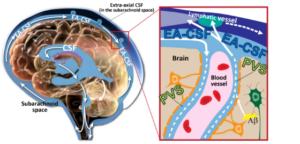 ENLARGED SPACES IN INFANT BRAINS LINKED TO HIGHER RISK OF AUTISM
ENLARGED SPACES IN INFANT BRAINS LINKED TO HIGHER RISK OF AUTISM
For the first time, researchers at the UNC School of Medicine’s Department of Psychiatry, discovered that infants with abnormally enlarged perivascular spaces have a 2.2 times greater chance of developing autism compared to infants with the same genetic risk. Their research also indicated that enlarged perivascular spaces in infancy are associated with sleep problems seven to 10 years after diagnosis.
 2023 ANNUAL REPORT
2023 ANNUAL REPORT
We invite you to see our 2023 UNC Department of Psychiatry Annual Report for even more examples of our commitment to aiding the mental health crisis and fighting the stigma of mental illness.
EMAIL #2

Dear colleagues,
The UNC Department of Psychiatry has experienced transformative growth on many levels and we celebrate the innovation, dedication, and impressive accomplishments exhibited by our talented faculty, learners, and staff. It is a great privilege to work with outstanding colleagues, like you, who are rising to the challenge each day to address the mental health crisis that we face.
For the past 71 years, the UNC Department of Psychiatry has demonstrated a fierce commitment to excellence in our missions: clinical services, teaching, research, and advocacy for our patients, which have meaningful impact across North Carolina and beyond. We hope this message brings recognition to the immense dedication and efforts being made to improve the mental health of local and distant communities. We look to you for support in the upcoming US News and World Report Best Hospitals Survey as we move toward our next 71 years.
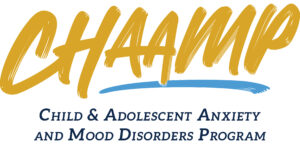 TAKING ON THE YOUTH MENTAL HEALTH CRISIS
TAKING ON THE YOUTH MENTAL HEALTH CRISIS
The UNC Child and Adolescent Anxiety and Mood Disorders Program (CHAAMP) is a cutting-edge, multidisciplinary research program that investigates the prevention, diagnosis, and treatment of anxiety and mood disorders in youth. Our mission is to transform the way we predict, prevent, and intervene when children and adolescents are struggling with mental health issues. Already a growing problem, mental health disorders in youth skyrocketed during the pandemic and were made worse by the lack of access to effective treatments. CHAAMP’s standout projects are dedicated to increasing access to mental health care for youth, aiming to bridge the gap in care availability by embedding behavioral health in primary care settings, and explores recent efforts to leverage schools as a setting in which to provide youth with mental health services.
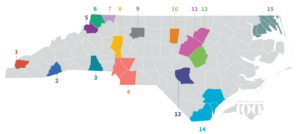 FOCUSING ON SUICIDE PREVENTION
FOCUSING ON SUICIDE PREVENTION
UNC Suicide Prevention Institute aims to improve healthcare and outcomes for patients with mental illness. The institute also supports research to better understand how suicide can be prevented. The Carolina Across 100 and the UNC Suicide Prevention Institute have partnered with 15 communities from every part of North Carolina to address mental health challenges and prevent suicides. The selected teams are composed of health providers, government agencies, educational institutions, faith-based groups, and civic and nonprofit organizations from 24 counties across the state.
 CENTER OF EXCELLENCE FOR EATING DISORDERS CELEBRATES 20 YEARS
CENTER OF EXCELLENCE FOR EATING DISORDERS CELEBRATES 20 YEARS
The UNC Eating Disorders Program was the first university-based comprehensive treatment program for eating disorders in North Carolina. When we had inpatient, partial hospitalization, and outpatient programs, we were not only the first, but the only such program in the Southeast. We continue to deliver the highest standards of care at our inpatient unit and outpatient program. CEED is also the home of the only National Center of Excellence for Eating Disorders funded by the Substance Abuse and Mental Health Services Administration. What has always made CEED special is the people. From the youngest undergraduate research assistant to the most seasoned clinicians and researchers, CEED has heart and is dedicated to improving the lives of all individuals with eating disorders and their families.
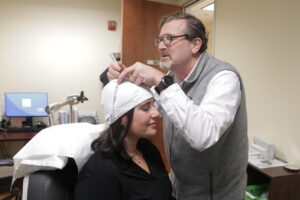 EXPANDING INTERVENTIONAL PSYCHIATRY
EXPANDING INTERVENTIONAL PSYCHIATRY
Interventional Psychiatry has accounted for 5,520 outpatient visits over the past year. UNC ECT service serves a heterogeneous psychiatric population recruiting attendings with expertise in Geropsychiatry, Psychotic disorders, Child and Adolescent(CAP) psychiatry, and Interventional Psychiatry. Esketamine-assisted therapy has seen a 237% increase with 2,363 visits this year. This year, we will start recruiting participants for our open-label pilot study of psilocybin-assisted therapy for treatment-resistant depression. In this feasibility study we will compare one versus two sessions of psilocybin-assisted therapy in patients with treatment-resistant depression, the duration of antidepressant effect over 12 months, as well as the effect of mystical experience, psychological flexibility, and therapeutic rapport on improvement and relapse.
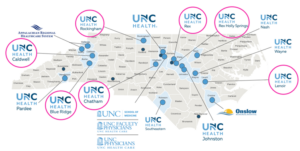 INNOVATIVE VIRTUAL CARE MODELS
INNOVATIVE VIRTUAL CARE MODELS
The UNC Health Acute Telepsychiatry Service is a collaboration between UNC Virtual Care Services and UNC Department of Psychiatry and provides virtual psychiatric consultation to UNC Health emergency departments and inpatient medical/surgical units at 7 locations throughout the state where mental health resources are scarce. UNC Health Appalachian is the newest location that opened in November. Over 1,300 patients received a total of 2,048 consults in the past year. These consultations were conducted by 42 UNC Department of Psychiatry faculty members. Approximately 29% of consults were conducted on children and adolescents.
 2023 ANNUAL REPORT
2023 ANNUAL REPORT
We invite you to see our 2023 UNC Department of Psychiatry Annual Report for even more examples of our commitment to aiding the mental health crisis and fighting the stigma of mental illness.
